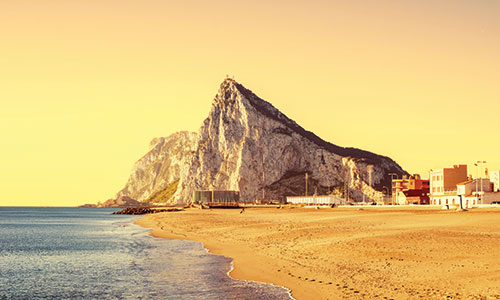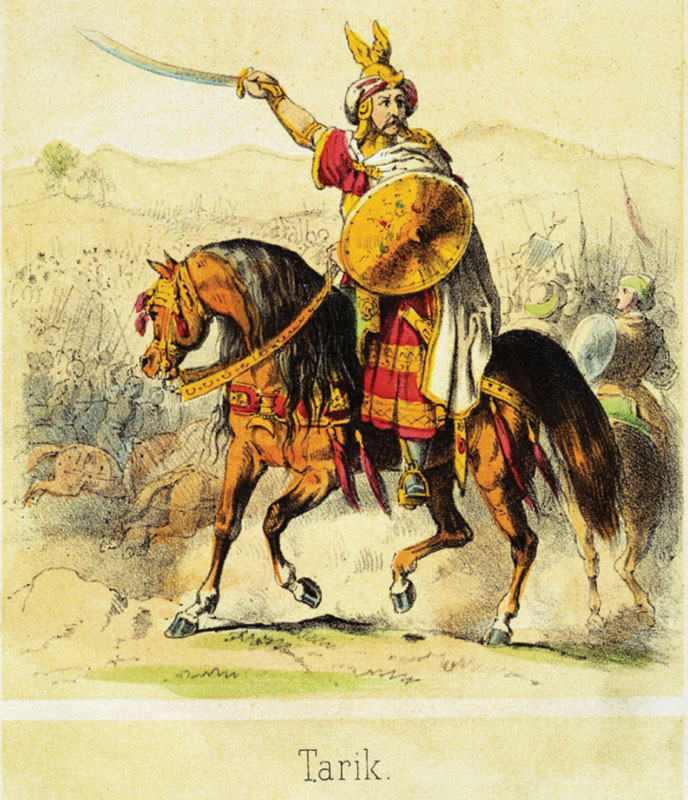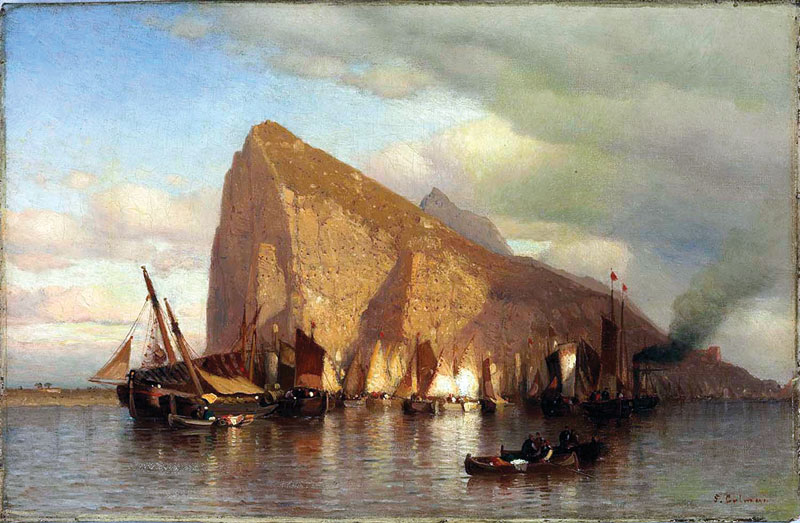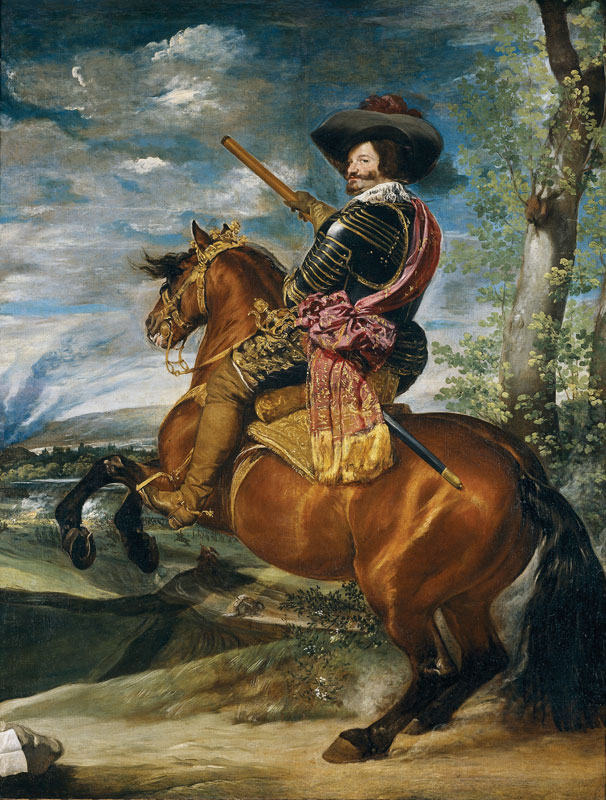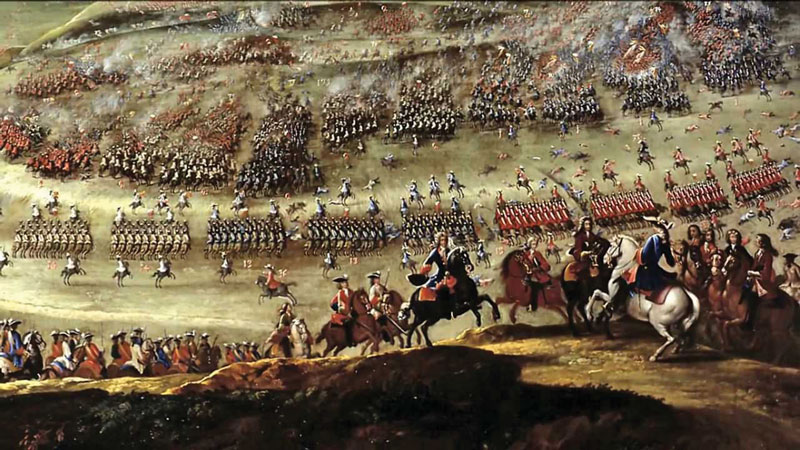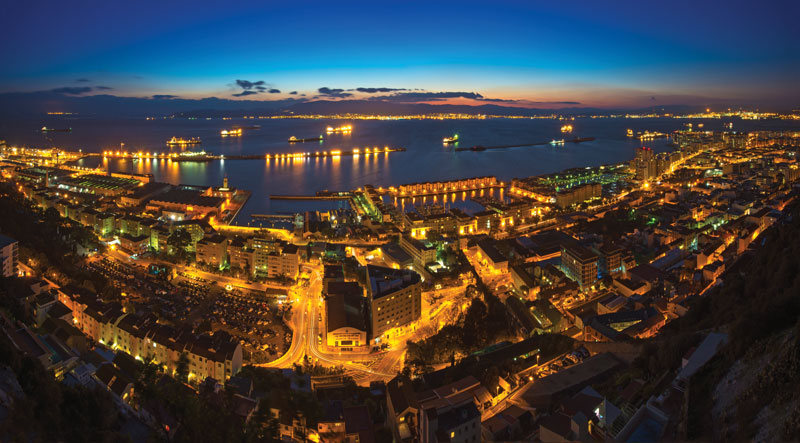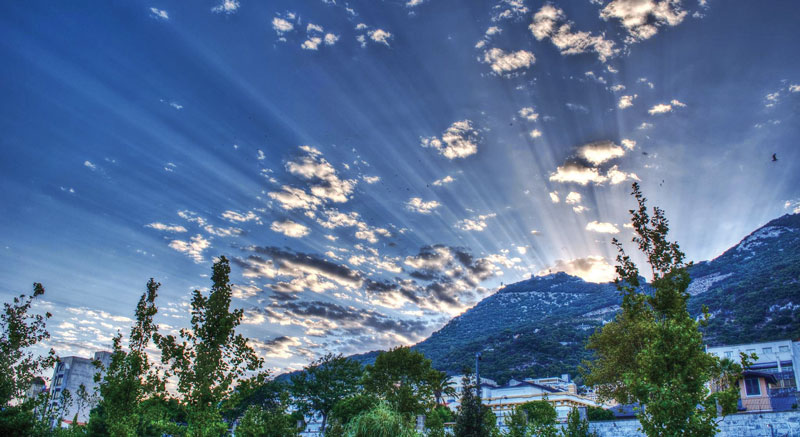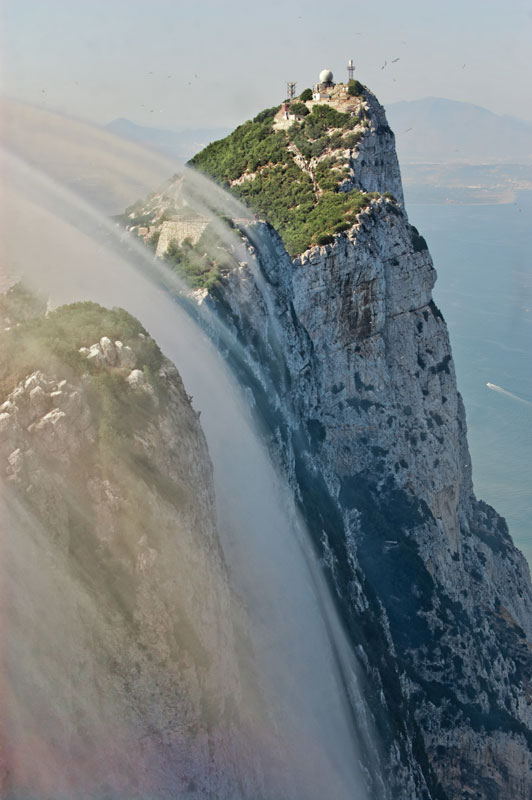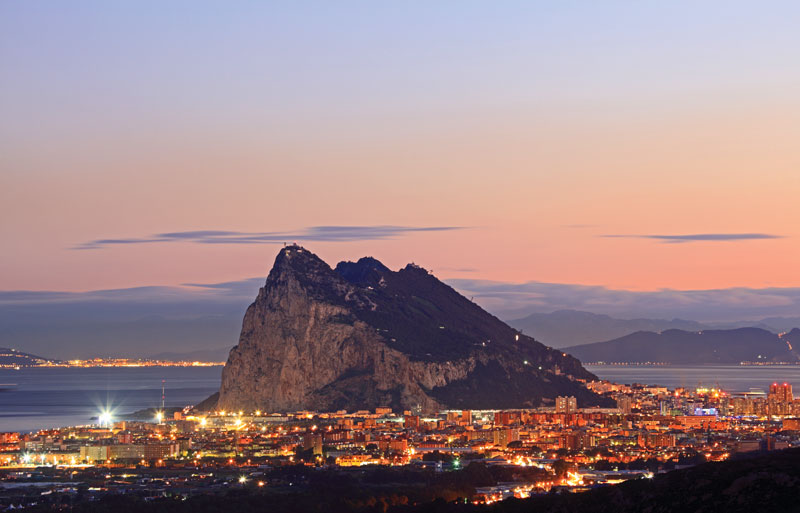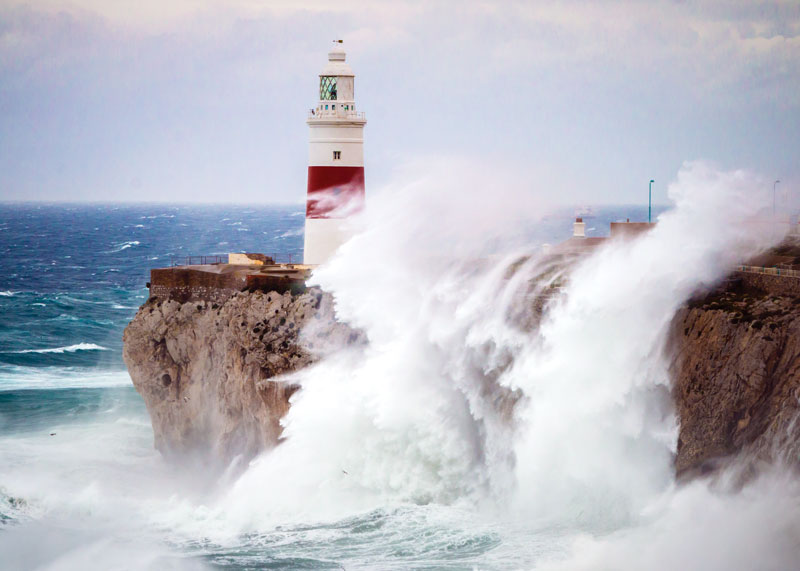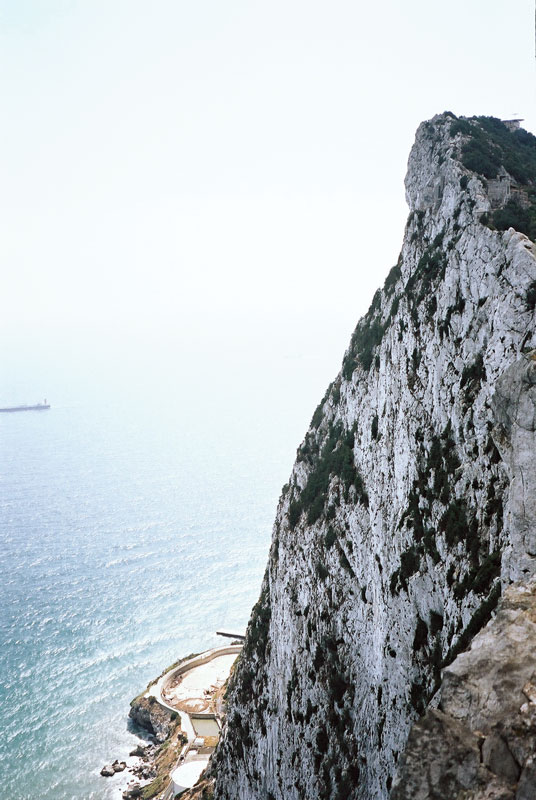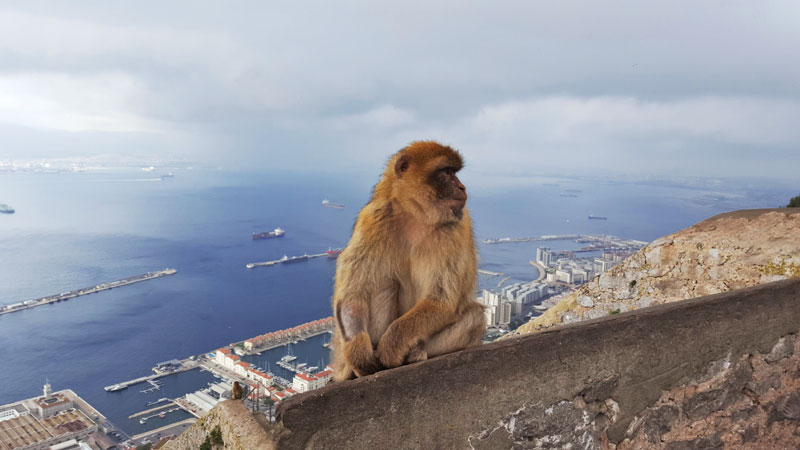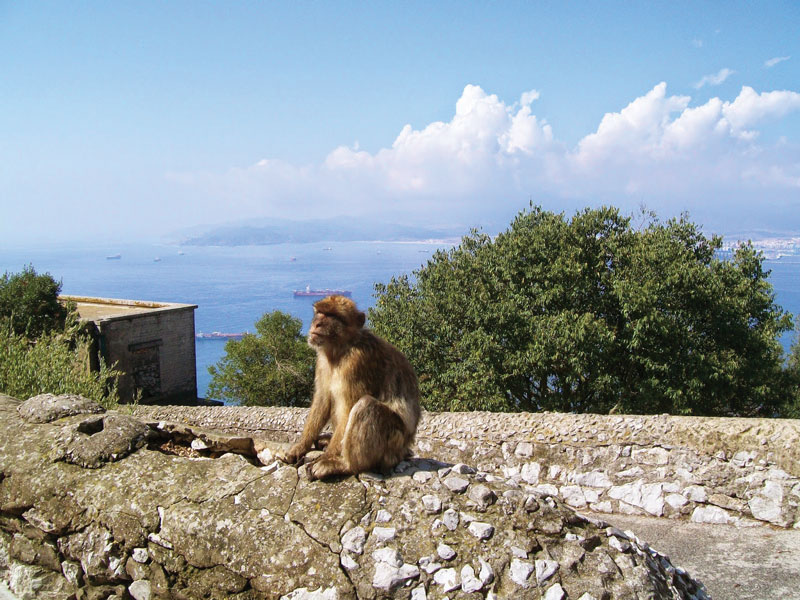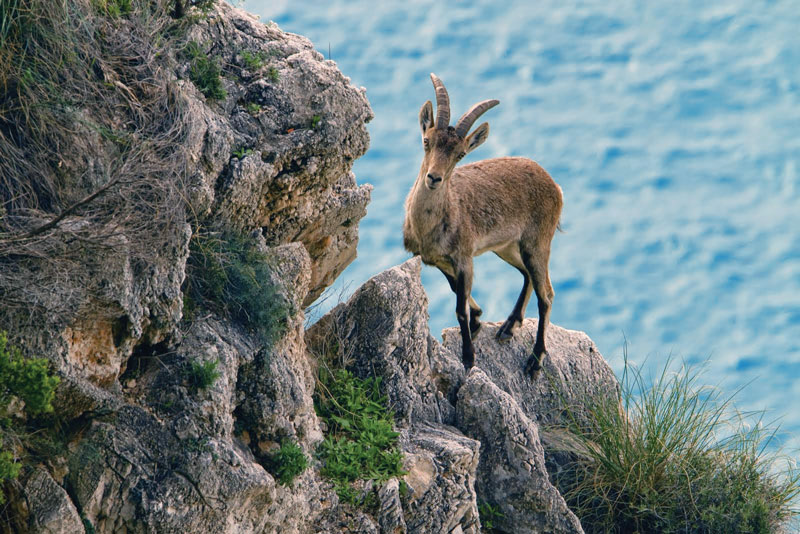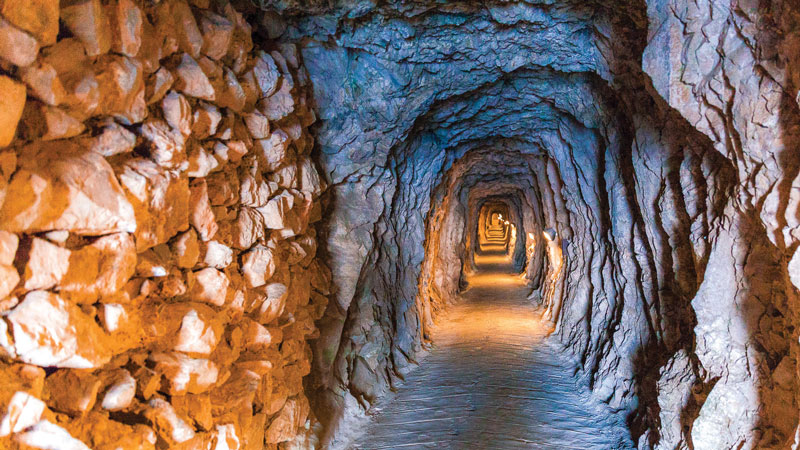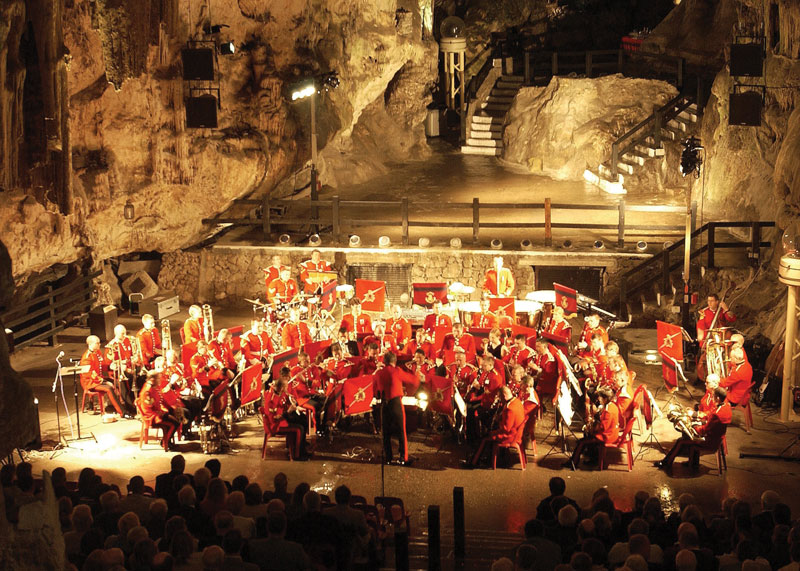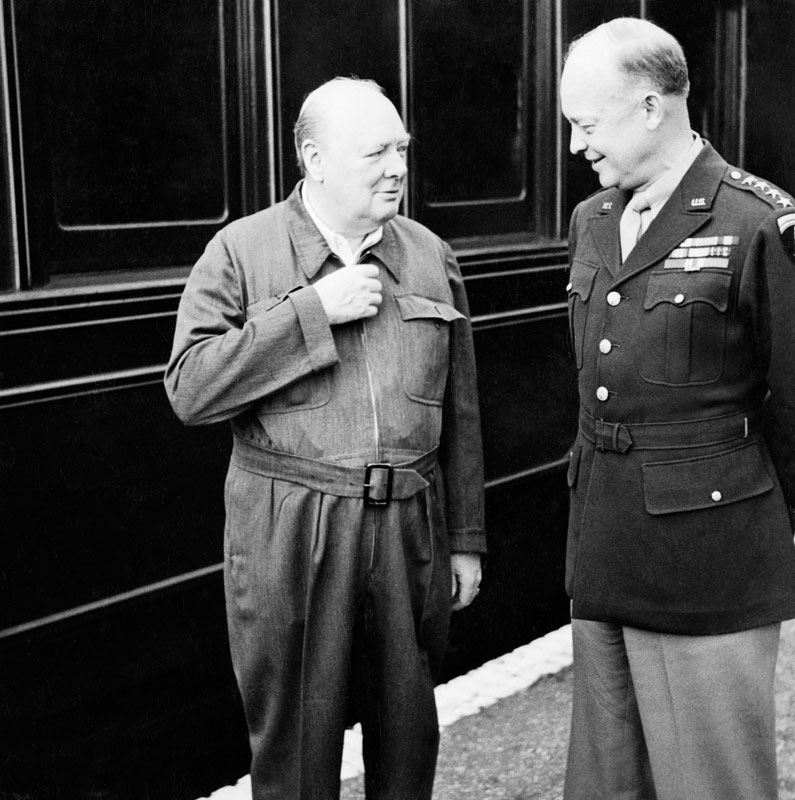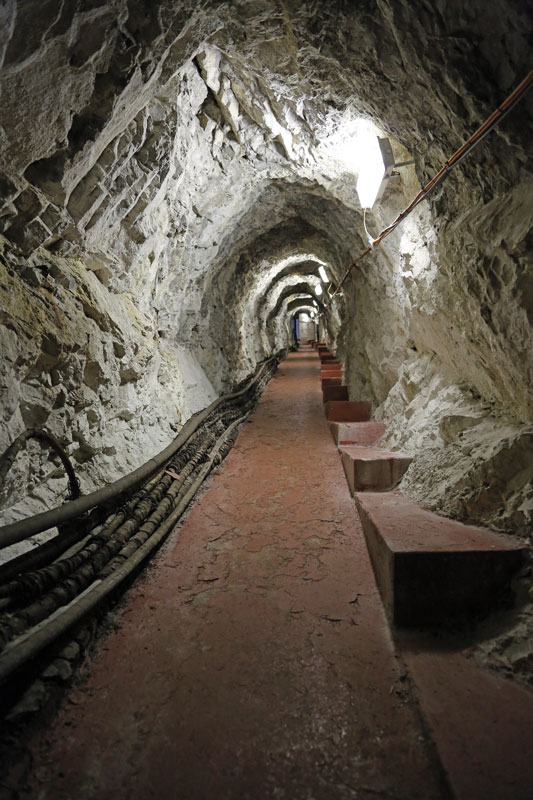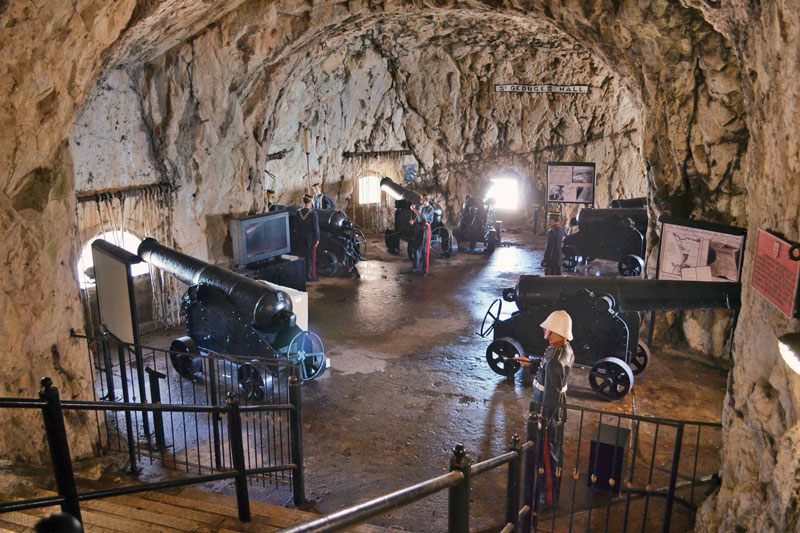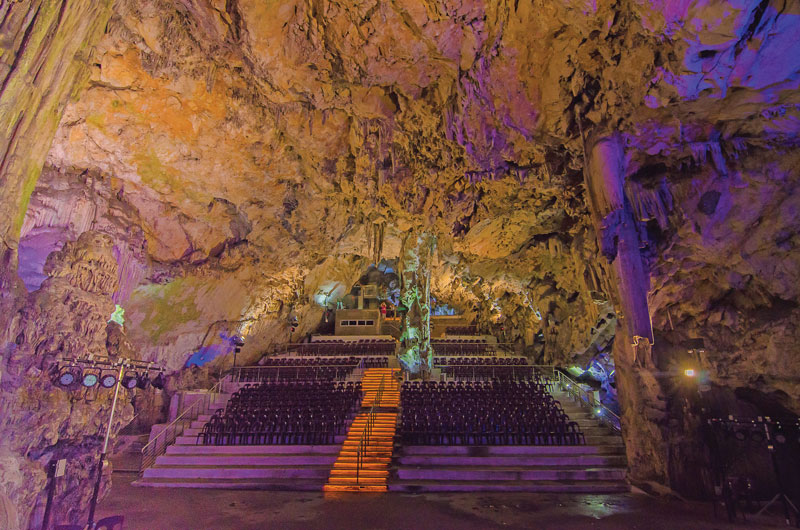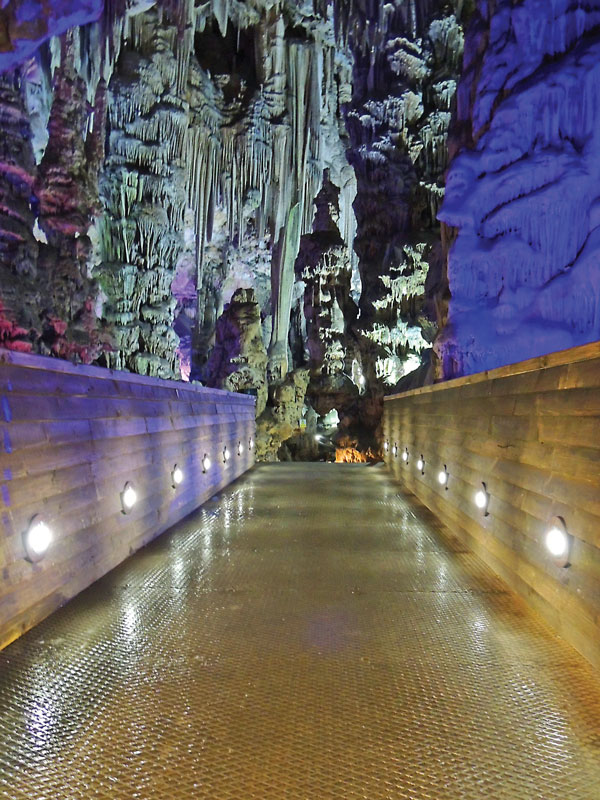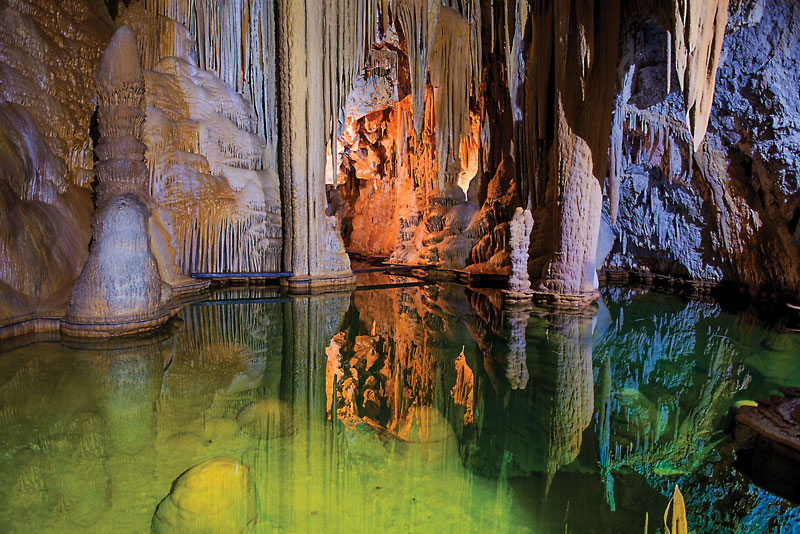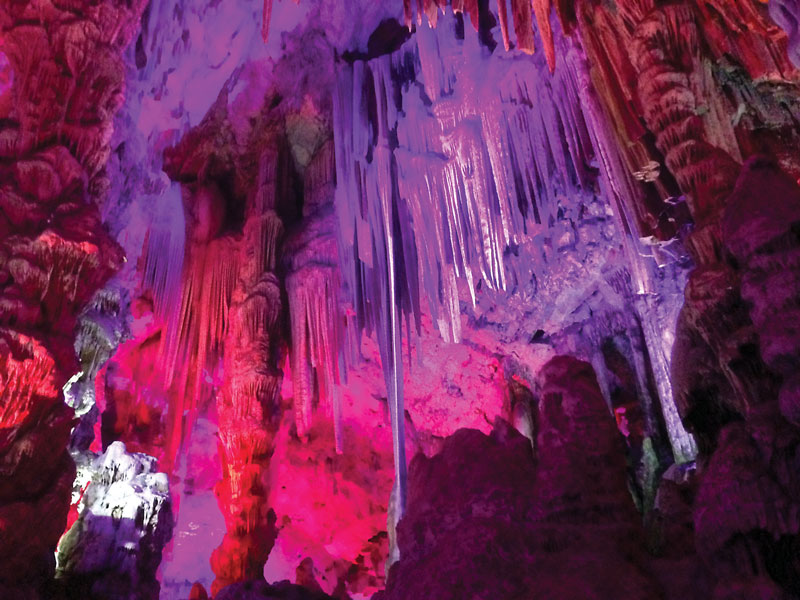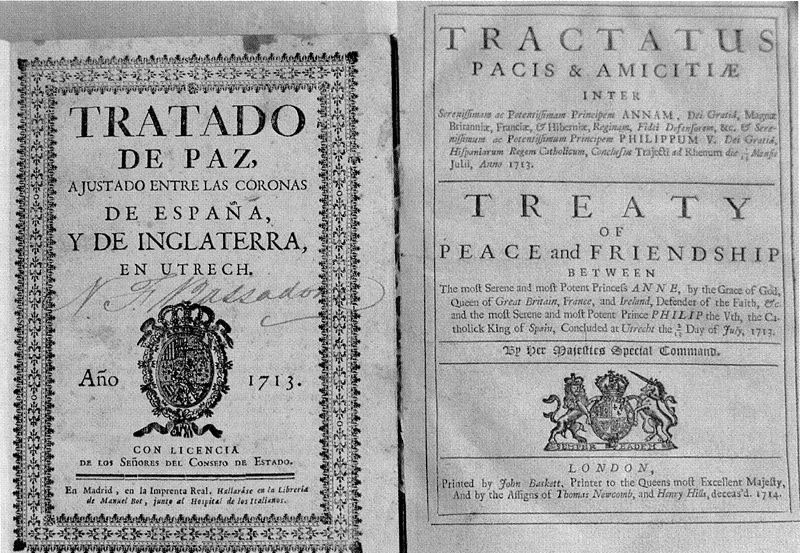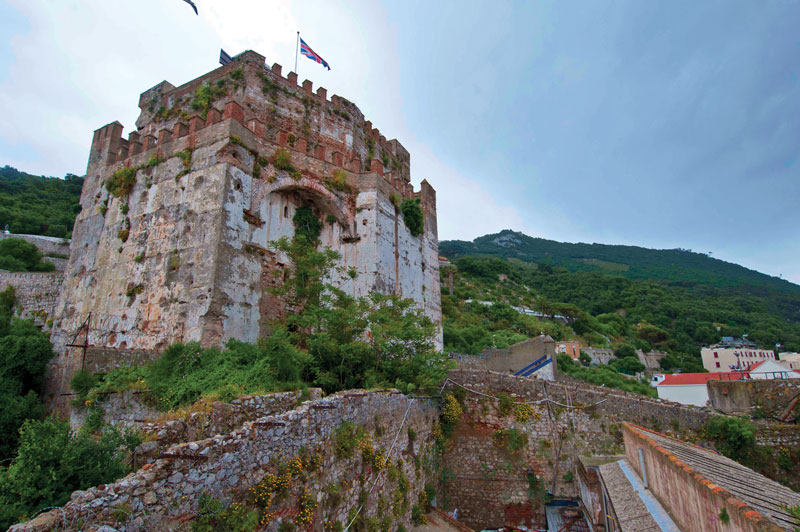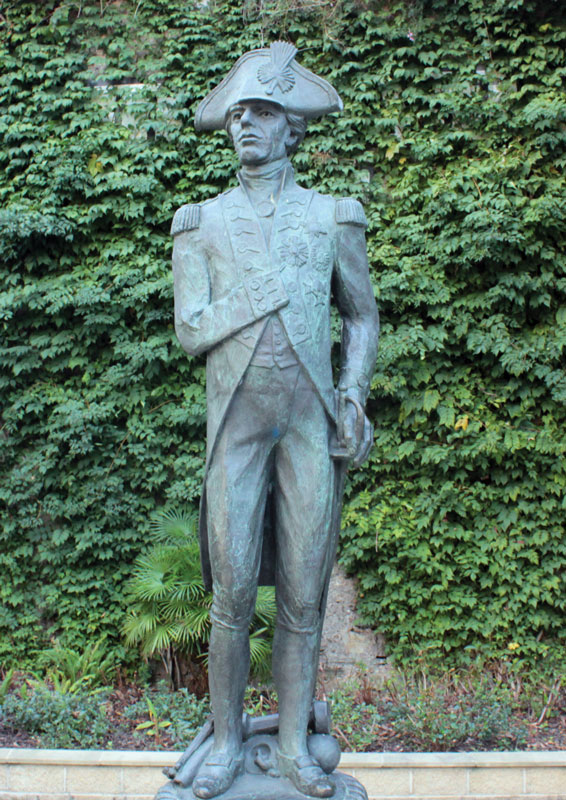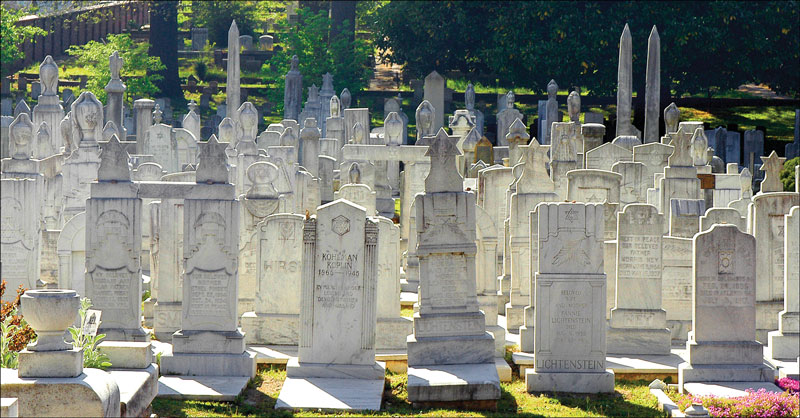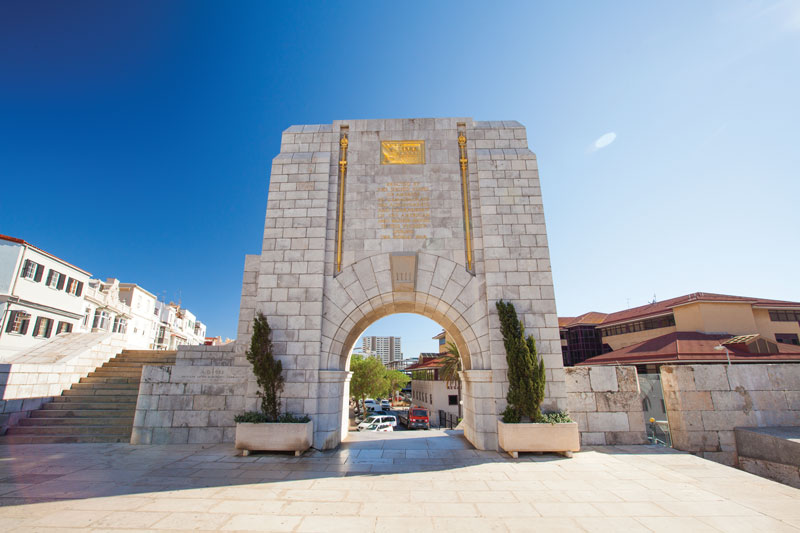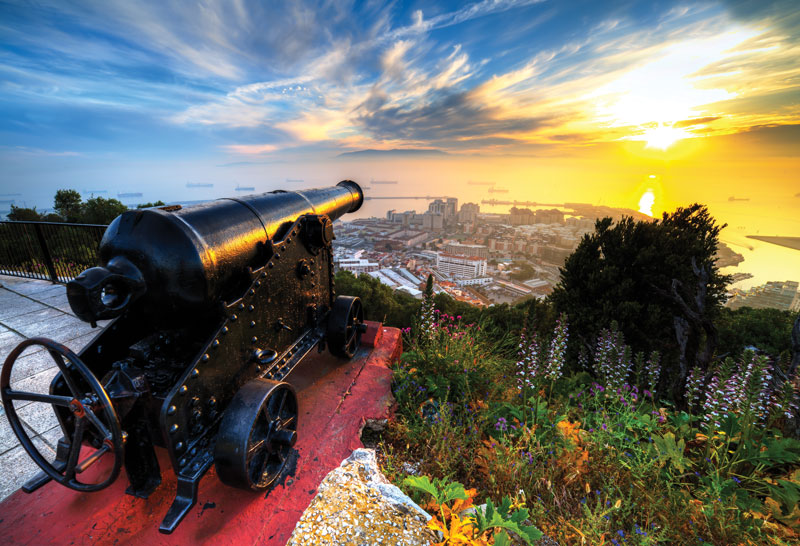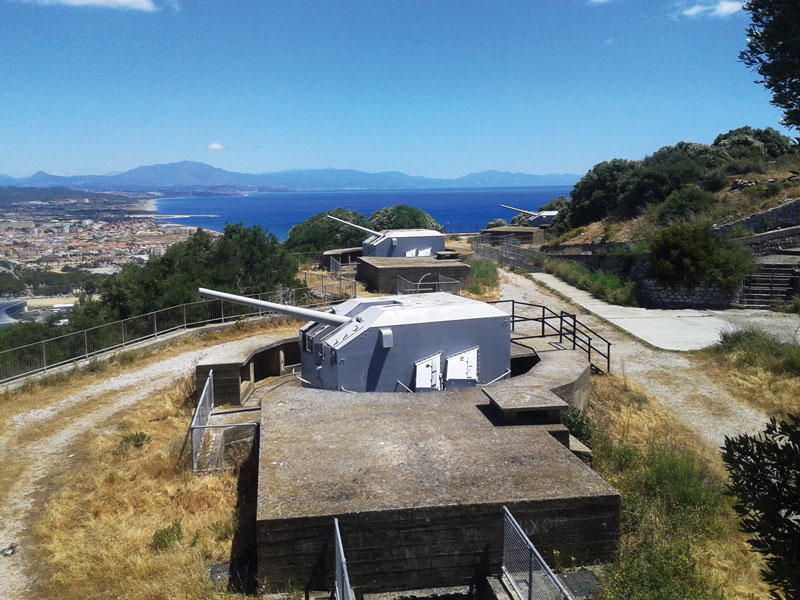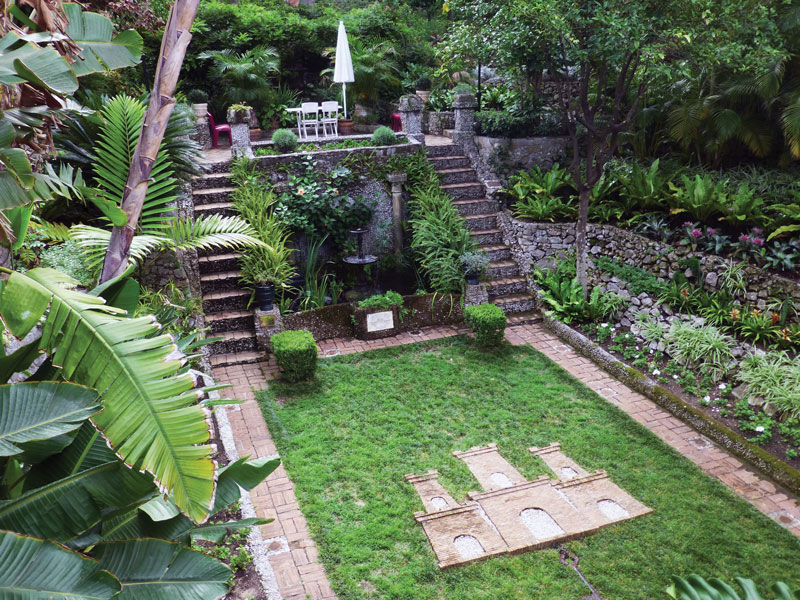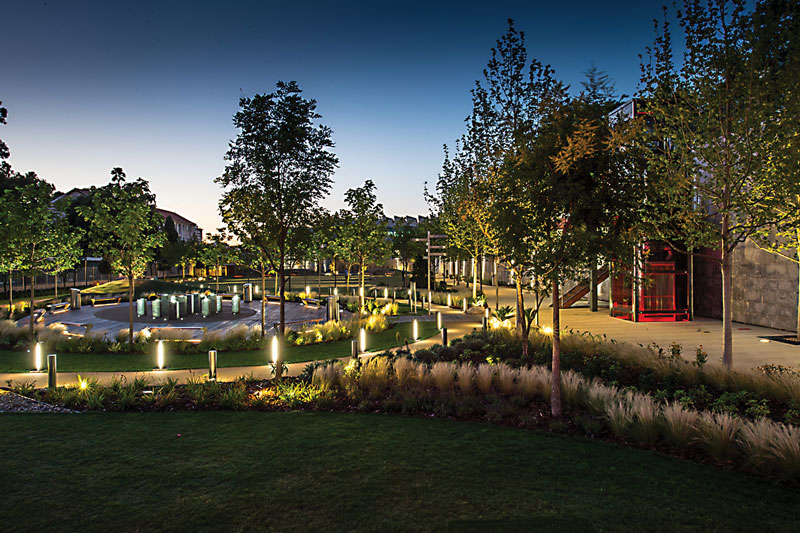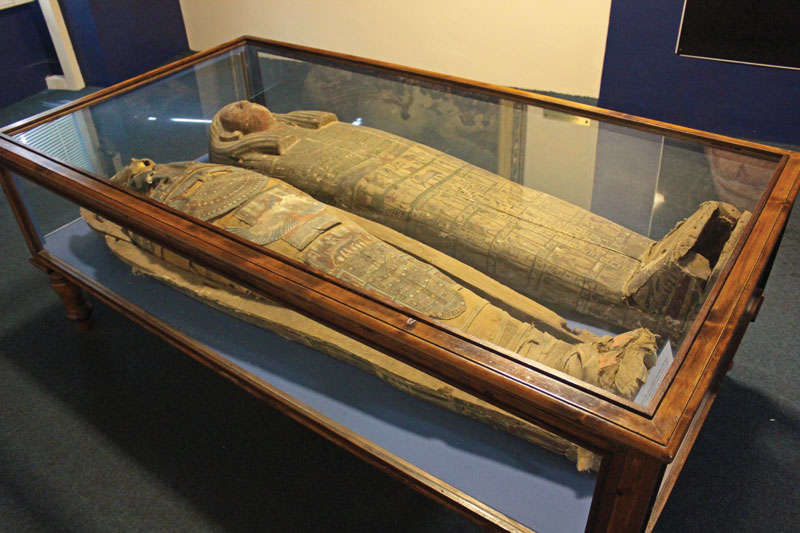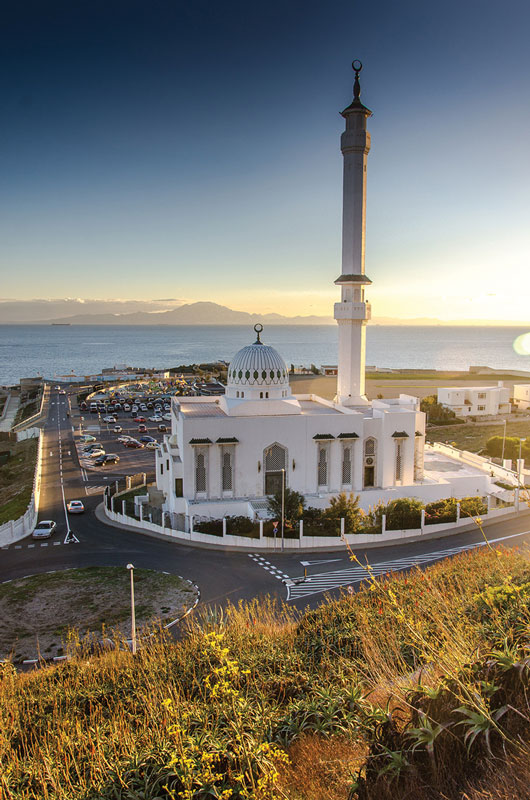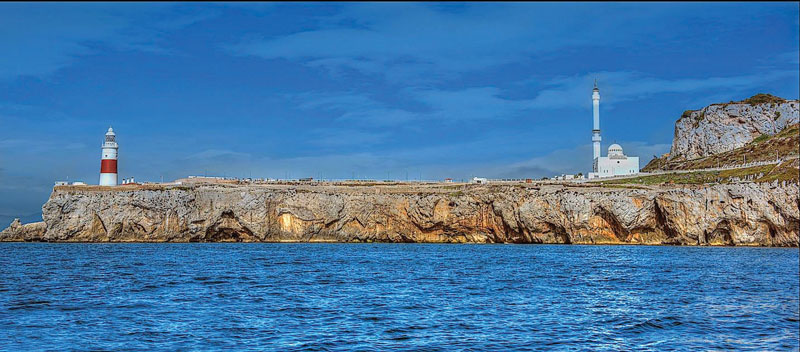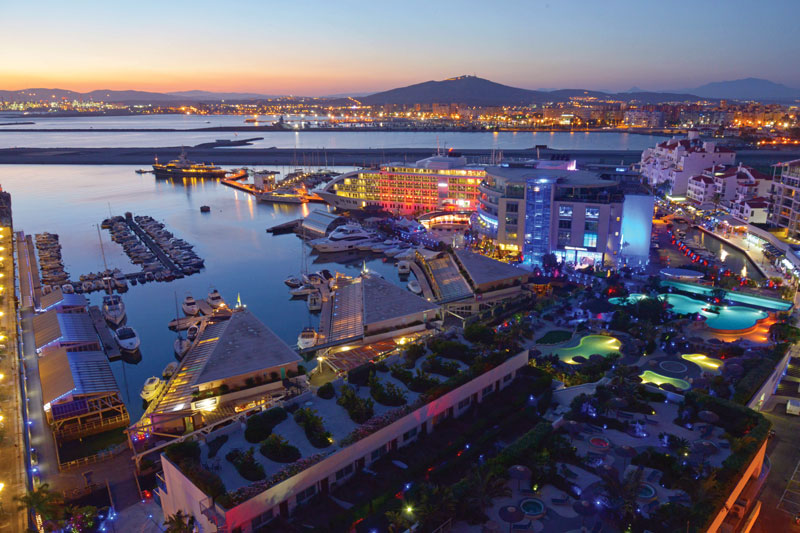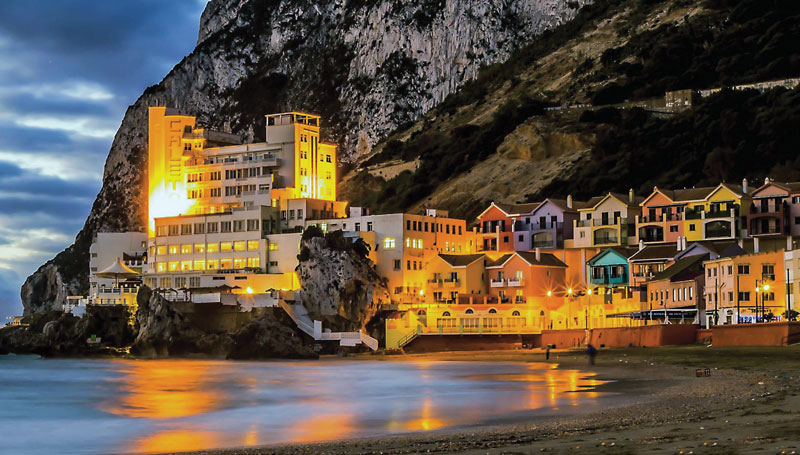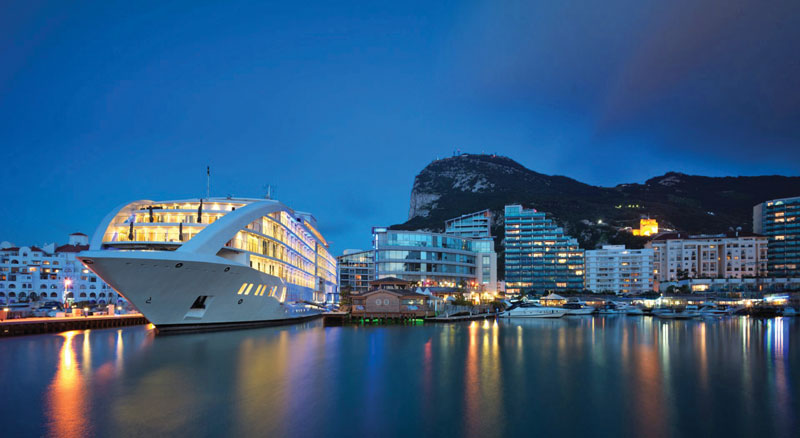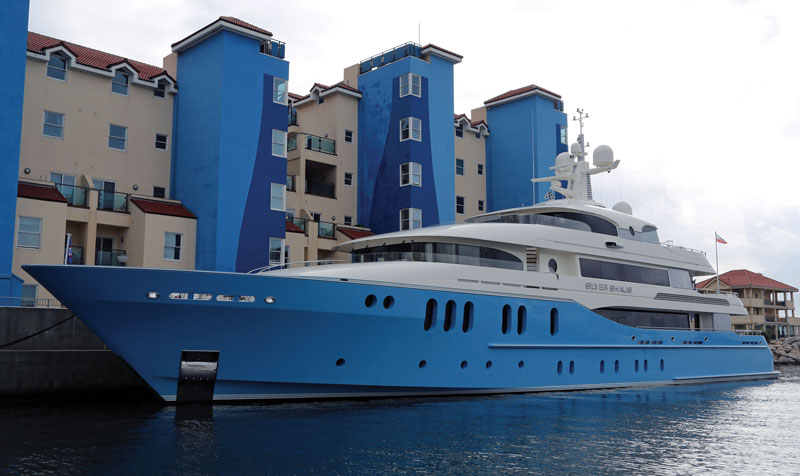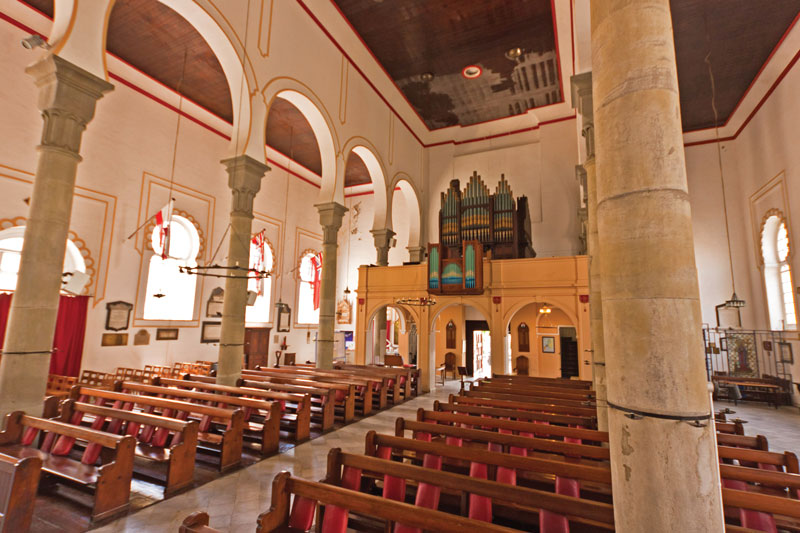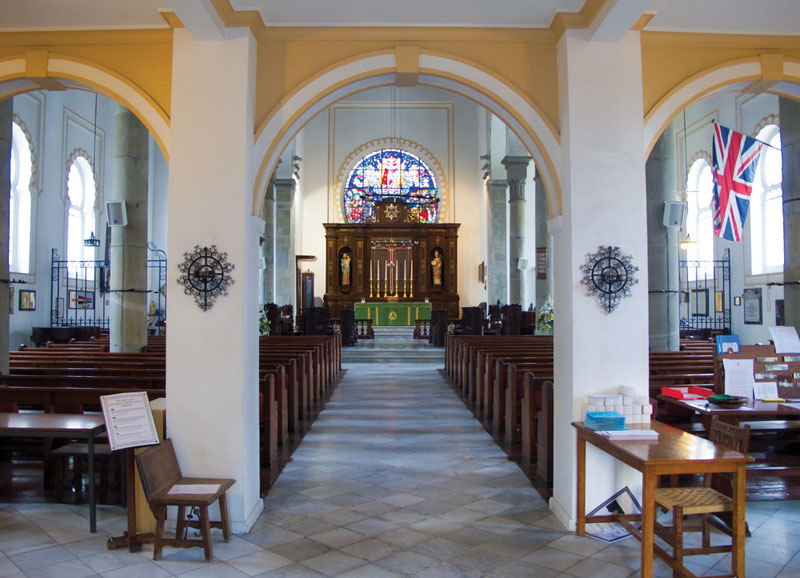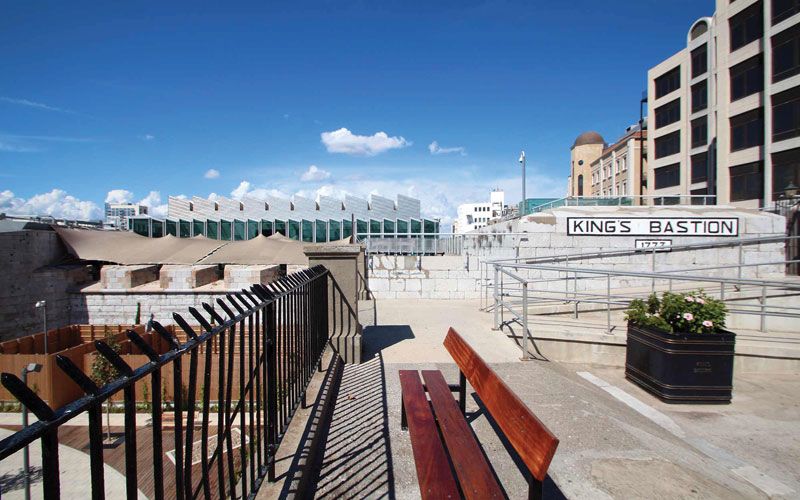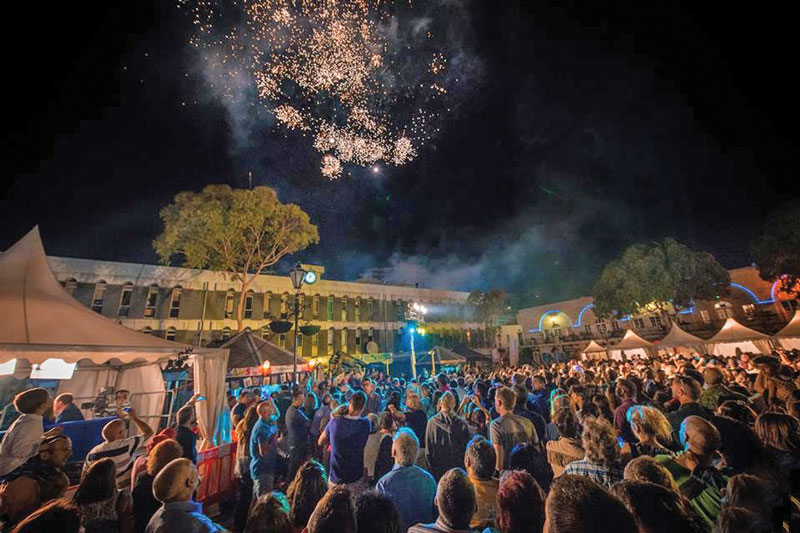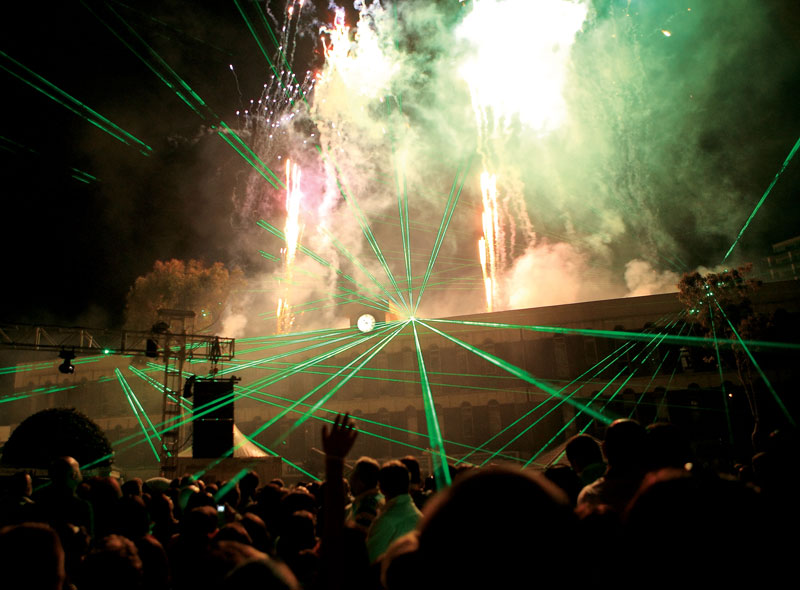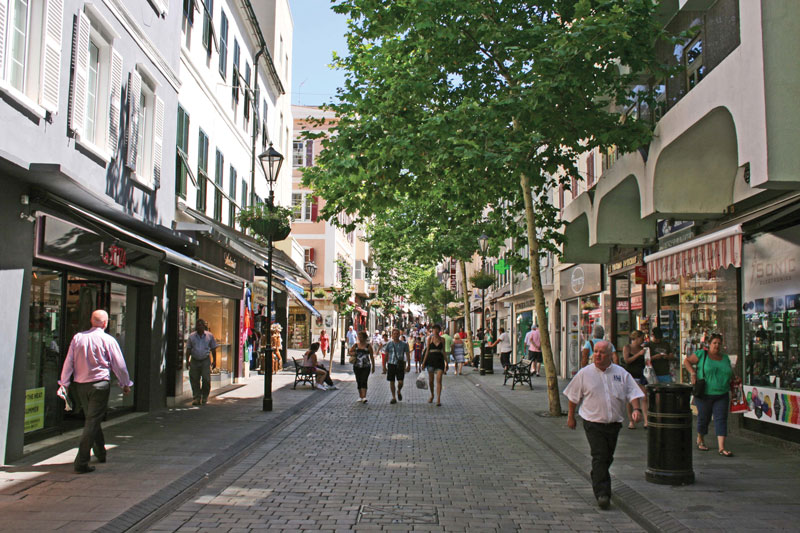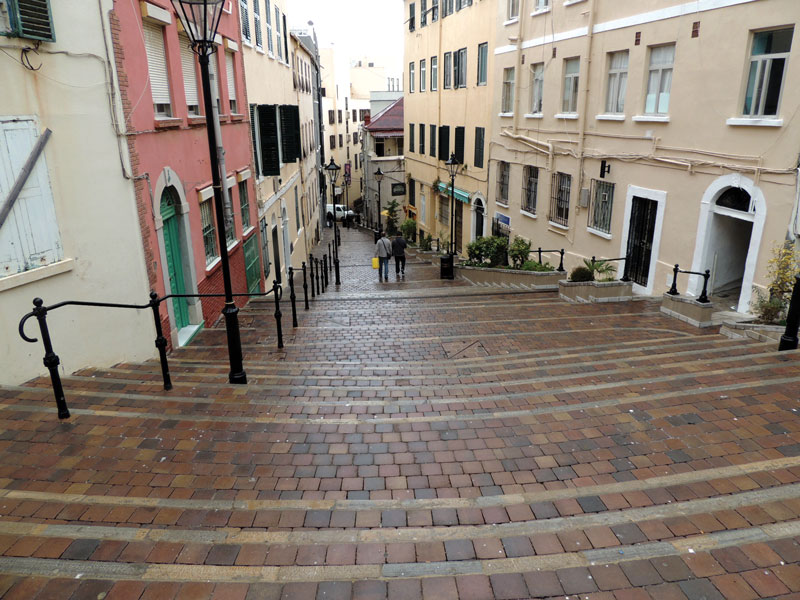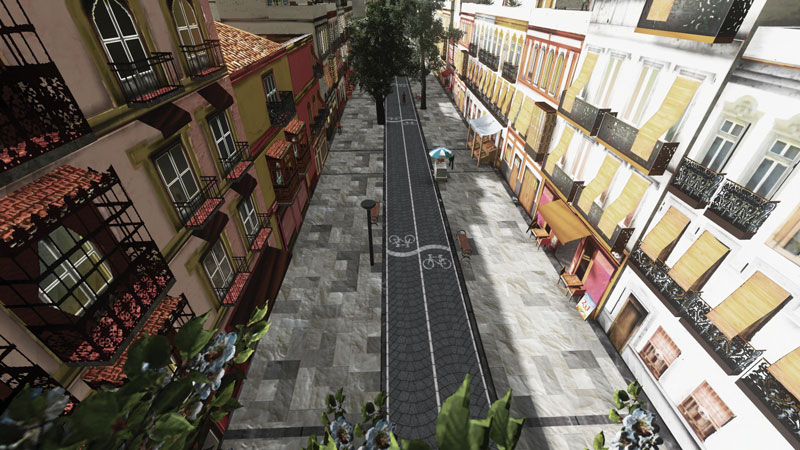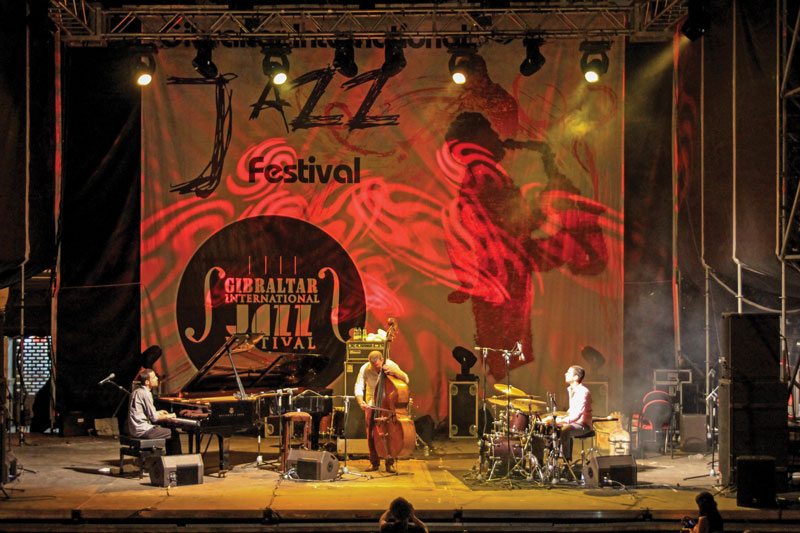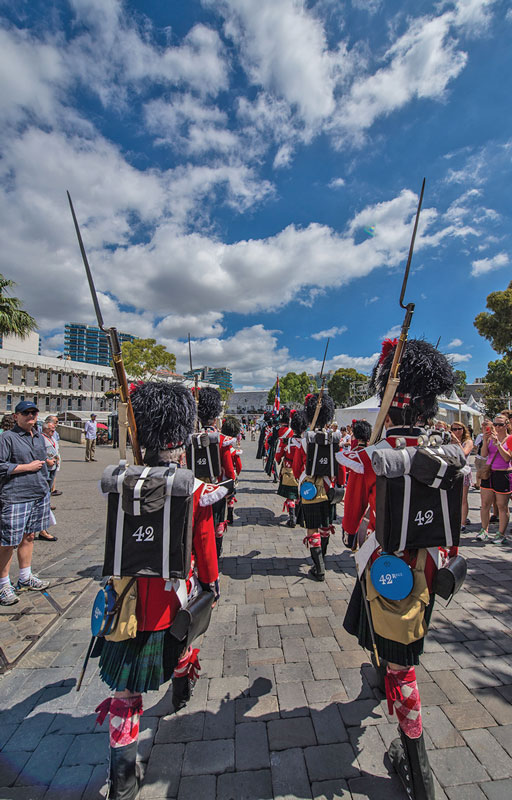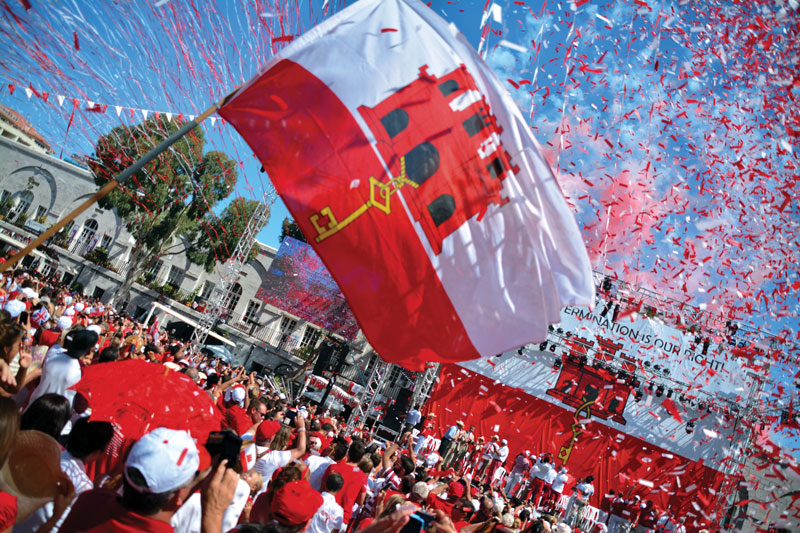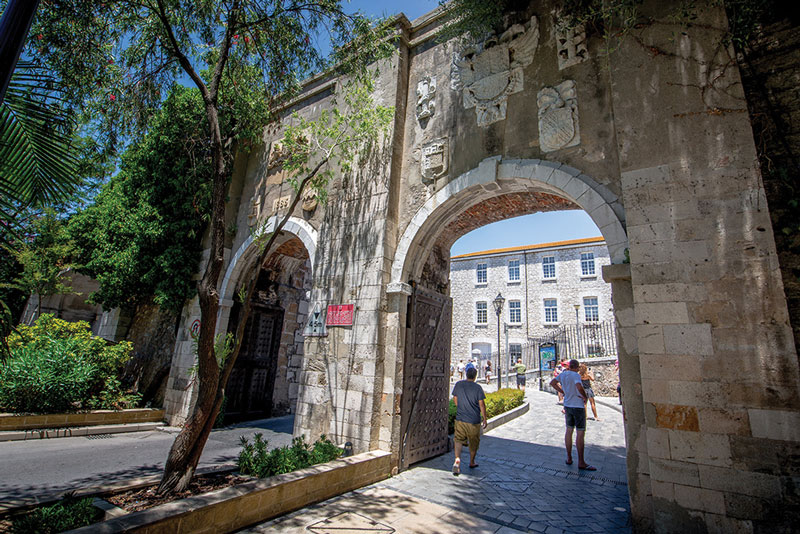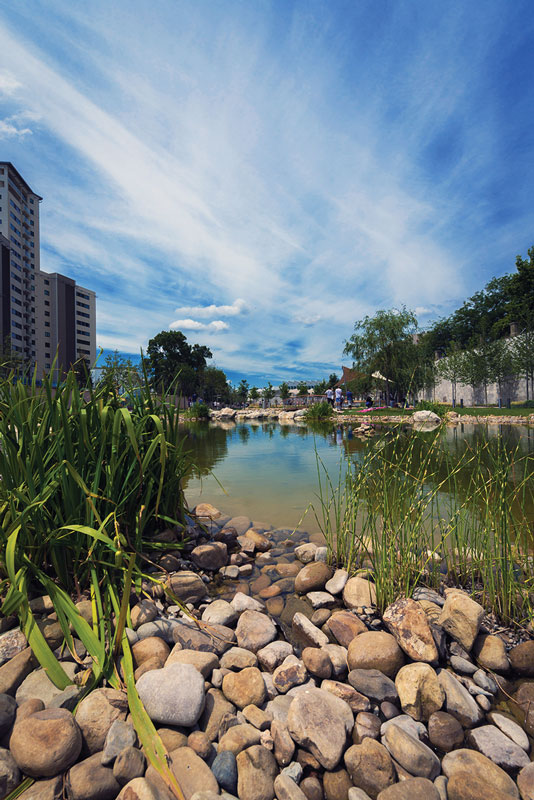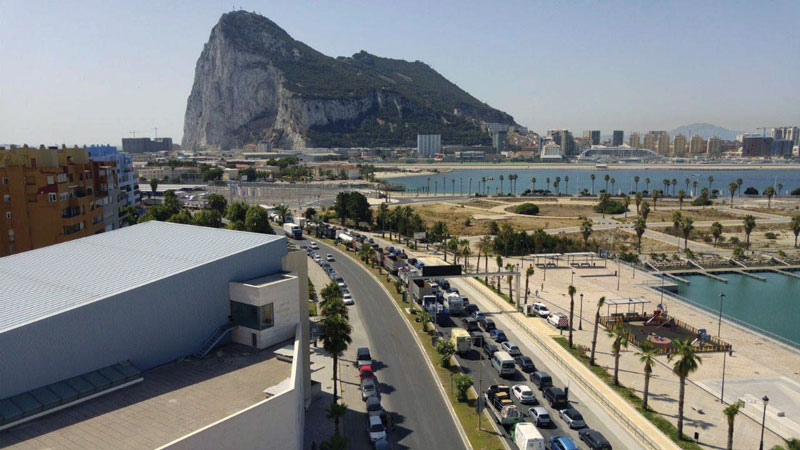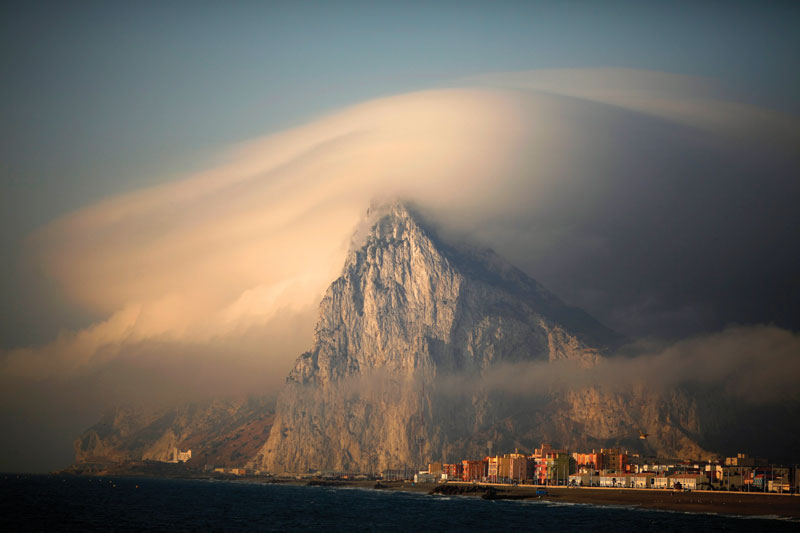The Threshold to the Mediterranean
Gibraltar has the soul of an island, although in reality it is part of the Iberian Peninsula, to which it is geographically connected at the Gibraltar Countryside through an area called La Verja, the border between Spain and the Rock—British territory. Its location is strategic because it is also facing Ceuta at the northeast region of Africa.
It is believed that this distinctive promontory, in some time in the prehistory—which is calculated to have happened 200,000,000 years ago—was submerged under the sea. Its surface is mostly limestone formed through hundreds of years of evolution and its current form goes back to the last Ice Age.
The 8th century marks the date of the Umayyad Conquest of Hispania. In April 30, 711, Ṭāriq Benzema ibn Ziyād al-Layti commanded seven thousand Berber soldiers and crossed the Strait of Gibraltar. They disembarked victorious in Calpe, “the north pillar of the Strait,” which was called Gibraltar from then on (Jebel Tariq or Tariq's mountain) in honor to the general.
Muslims ruled the Rock during four centuries, but it wasn’t until 1150 that the sultan Almohad Abd al-Mu'min founded the first permanent settlement in the history of the Rock.
In 1309, Fernando IV of Castile’s forces occupied Gibraltar, but in 1333 it returned to the Muslims, who won the territory back after five months of battles. Different Muslim factions maintained this power until the Duke of Medina Sidonia re-conquered Gibraltar in 1462 (after eight sieges); that was the end of Muslim rule over the Rock. The Kingdom of Castile reigned until 1704. The War of the Spanish Succession took place between 1701 and 1713, fought by Anglo-Dutch troops and French-Spanish forces. The confrontations ended in 1713 when the Treaty of Utrecht was signed and several territories were exchanged; one of the agreements granted Great Britain legitimate possession of Gibraltar, still in force today.
Gibraltar is an overseas British territory, but it has a government and a constitution of its own.
Its population is of approximately 30,000 people, who call themselves “Llanitos”, which is also the name of their colloquial dialect, and a cultural trademark: half British and half Spanish—a condition that encompasses many other aspects. One of them is the food; they alternate the traditional dishes of both countries at the same table. Llanito also contains Hebrew (7% of their population is Jewish) and Muslim (2%) words. Gibraltar has its own parliament and government, although the United Kingdom is responsible of its defense and exterior politics. The Spanish still claim the sovereignty of this overseas settlement that is included in the ONU’s Special Committee on Decolonization’s list of Non-Self-Governing Territories. However, the population has chosen freely and democratically to keep the status that makes them part of the United Kingdom with 99% of approval, expressed in two referendums that took place in 1967 and 2002. Gibraltar is famous for its economic success, with only a 5% unemployment rate.
A Rock Full of Surprises
The Rock of Gibraltar has barely 6.5km2; in this region, many geological, ecological, cultural and historical elements of great interest converge. With an average temperature of 18°C, it enjoys 320 sunny days a year. Simultaneously, strong winds benefit the practice of nautical sports. The preservation of its habitat has shaped a true oasis for the development of wildlife. It’s a place that has benefitted from the mixture of cultures involved in the course of its history and has created a unique identity.
Gibraltar Nature Reserve
The upper reserve of the Rock has been catalogued as a protected area since 1993. In 2011, protection of the Punta Europa cliffs and other regions that span 40% of the total surface of Gibraltar was expanded with the purpose of preserving the integrity of several ecosystems such as the Mediterranean Forest, which harbors 350 species, many of them native of the area; they are extremely important for migratory bird flyways across the Strait. It is a privileged spot to appreciate the beauty of the panoramas that surround the Rock; it is also ideal for bird watching.
The Gibraltar Ornithological and Natural History Society (www.gonhs.org), founded in 1976, has compiled a list of 311 bird species that migrate through Gibraltar. It is highly possible that during your trip to the Rock you will encounter a species that has become a symbol of the city: the Gibraltar Monkeys (Macaca Sylvanus); on your way back you will be able to visit a place called Apes' Den. It’s not an odd occurrence to encounter other species in the wild either, like the Spanish ibex. This area is at the same time home to some of the most important historic places in Gibraltar.
The Tunnels of Gibraltar
Gibraltar has an altitude of 426m. Under the surface, it harbors 52km’s worth of tunnels that were dug between 1779 and 1783; historians assert that they were dug to reach the north of the Rock to position a cannon that would help them repel the last Spanish military attempt to recover the territory. This event, in which England was victorious, was known as the Great Siege. During the Second World War, the tunnels were expanded and rehabilitated when Great Britain entered the conflict; Gibraltar became a vital factor for allied troops to find shelter and re-provision.
One of the main chapters of history that took place in the depths of the tunnels was in 1941, when Winston Churchill and Dwight D. Eisenhower planned Operation Torch that was enacted on November 8, 1942, when 600 war ships disembarked 70,000 soldiers both British and American in Safi, Casablanca, Oran, and Algiers. The tunnels, by the time the conflict was over, were comprised of a 52km underground maze with weaponry storages, a surgical field hospital, kitchens, diners, water and fuel deposits, electricity generators, butcheries, bakeries, etc. They remained closed to the public for a long time, but some sites have been opened for visitors since 2005, even the City under Siege exhibition: a photographic show of the events inside the tunnel. Guided visits are carried out daily, and they last about an hour.
St Michael's Cave
Located 300m above sea levels, it is the most famous cavern with approximately 1,000,000 visitors per year. You can explore it in its whole; many of its areas are illuminated, highlighting and tinting in different shades the formations of the millenary stalagmite, which have been the background of several moments in the history of the Rock. You can attend a concert in the magnificent Cathedral Cave, or visit Leonora's Caves—for a while it was believed that it crossed under the ocean to the African coast. For the more experienced adventurers, you can reserve a programmed visit to the Lower Cave, always accompanied by a professional guide; climbing is required to explore its deepest corners and discover its secret: an underground lake. Enjoying this enigmatic beauty will be your reward.
The Catholic King does hereby, for himself, his heirs, and successors, yield to the Crown of Great Britain the full and entire property of the town and castle of Gibraltar, together with the port, fortification, and forts thereunto belonging; and he gives up the said property to be held and enjoyed absolutely with all manner of right for ever, without any exception or impediment whatsoever. - Treaty of Utrecht
Moorish Castle
It is located at the north end of the Natural Reserve, and is visible from every direction on the Rock. Its foundations were built in the 8th century. The Tower of Homage is its most important structure, rebuilt during the 14th century by the Arabs. It constitutes several buildings, gates and walls that extend from the top down to the sea; they were part of the original city and it included housing, mosques and Moorish Baths. The Gibraltar Heritage Trust is the one in charge of the protection and maintenance of this historic relic.
Other points of interest at the Natural Reserve are: the Mediterranean Steps, a stroll through the Gibraltar flora, the Jews' Cemetery Battery, built in the 18th century, and the Trafalgar Cemetery, O'Hara's Battery at the highest point of Gibraltar where a canon from the Second World War remains, as well as Princess Caroline's Battery, where the Military Heritage Center is located.
Summer: 09:30 to 19:15
Winter: 09:00 to18:15
For this trip, the ideal means of transportation is the cable car, designed and built by the Swiss brand Von Roll in 1966. There is a station at the base of the Rock, and the trip will take you to the summit, 412m high, in just 6 minutes.
November to March: every day from 9:30 to 17:15
April to October: every day from 9:30 to 19:15
Gibraltar GX11 1AA, Gibraltar.
+63 35 421 0966
Gibraltar Heritage Trust
Tel: +350 200 42844
http://gibraltarheritagetrust.org.gi/
Summer
09:30 a 19:15
Invierno/Winter
09:00 a 18:15
November to March: every day from
9:30 a 17:15
April to October: every day from 9:30 a 19:15
The Gibraltar Botanic Gardens
In the beginning, they were called La Alameda Gardens, one of the most beautiful tourist attractions in Gibraltar today. April 14, 2016 marked 200 years since the gardens were opened to the public. They span an area of 17,500m2. Throughout history, there have been both periods of glory and neglect, until 1991, when the Gibraltar Government hired a private company that began its restoration until it became the splendid place it is today. It is considered an example of conservation because it is home to 2000 local and international species, a Children's Park, the Open Air Theatre with capacity for 450 people, and a series of monuments and historical sites.
Hours: every day from 8:00 am. a 9:00 pm.
Gibraltar GX11 1AA,
Gibraltar
Tel: +350 200 41235
Gibraltar Museum
It opened its doors on July 23, 1930. Its various rooms tell the story of Gibraltar, beginning with the prehistoric Era and the findings in the caves of the Rock from reconstructions of the remote environment and the Neanderthals. It offers examples of the different civilizations involved in its history: Phoenicians, Greeks, Romans, Arabs, Spaniards and Britons fundamentally. At the same time it exhibits a large-scale model of the Rock from 1865. You can attend the photographic exhibition of the scale model detailing each house and street as they were in that period, along with engravings, lithographs and weapons. Meanwhile, in the basement of the museum, you can find the remains of a house of Moorish baths from the fourteenth century that have been identified as the best preserved ones in Europe. There is a room exhibiting medieval artifacts excavated in the center of the city and a room dedicated to the variety of marine species in the Strait. The museum usually hosts a series of lectures on the historical and cultural heritage of Gibraltar.
Europa Point
It is the southernmost end of Gibraltar. This is why it is an ideal location to appreciate the bay and the Strait of Gibraltar, with the coasts of Spain and the north of Africa. Here, a lighthouse built in 1841 stands and its beam of light has a range of 17Mi. There is also the Ibrahim-al-Ibrahim Mosque, built in 1997; it was a gift from King Fahd of Saudi Arabia, which also includes a library, school and conference hall. This place is recognized as Punta Europa, where you can find the sanctuary of Our Lady of Europe, which is always open to the public, and this year marks 707 years of being the chosen space where the faithful come to worship the image of Our Lady of Europe with the Holy Child—the holy catholic patron of Gibraltar.
Marine Gibraltar
Gibraltar is located at one of the regions with the largest maritime traffic concentration, with approximately 100,000 ships per year. Its territorial waters are protected by the governments of the United Kingdom and Spain and have been integrated into the Natura 2000 network (an ecological network of biodiversity conservation areas in the European Union). Gibraltar has been transformed into a maritime center par excellence. The port is at the heart of its economic wealth and its extensive infrastructure. In terms of marinas, the location attracts international tourism, because it offers the possibility to travel from the port to Andalusia and Morocco.
For travelers who arrive in their private yachts, there are three marinas with capacity to receive vessels up to 70m long and 4.5m wide. They are, of course, the Marina Bay, located at the north end of the Rock, where you will have to fill a registry for your yacht and go through the legal paperwork for the crew. Queensway Quay is in the heart of Gibraltar, close to many attractions. Ocean Village has the most modern premises with bars and restaurants. Each one offers first-class services.
Six beaches are waiting for you along the coasts: Eastern Beach is the largest sandy area, special for sunny days and offers exquisite diners at night. Catalan Bay, with its community of fishermen and a sandy beach, is the most popular among residents, and tourists enjoy the restaurants specialized in seafood. Here, you will be able to visit Our Lady of Sorrows Church. Camp Bay and Little Bay sit next to the Atlantic, on the east end of Gibraltar; they have rocky beds, lovely views, two pools, bars and restaurants. The other two beaches are Sandy Bay and Western Beach.
Cathedral of the Holy Trinity
It is recognized as the largest and most important Anglican temple in Europe. It was consecrated in 1832. During 1842, it was given Cathedral status, and it included all Anglican chaplaincies from Portugal to the Caspian Sea. Its Mozarabic architecture stands out, present in the distinctive horseshoe-shaped arcs.
Info: Cathedral of the Holy Trinity http://www.holytrinitygibraltar.com
Cathedral of St. Mary the Crowned
It was founded in the 15th century and it is the main catholic worshiping center in the Diocese of Gibraltar, which encompasses the beliefs of 78.1% of the Rock’s churchgoers. Its architecture displays gothic influences, and it was built over the old site of the most important mosque in the city.
Gibraltar Galleries
If you wish to explore the offer of plastic arts in the city, there are many galleries available. Among them you can find The Mario Finlayson National Art Gallery, exhibiting the works of the most famous Gibraltarian artists: Gustavo Bacarisas, Jacobo Azagury, Leni Mifsud, Rudesindo Mannia, Mario Finlayson (http://culturesociety.dynamocms.com/art-heritage). Gibraltar Exhibitions of Modern Art, dedicated to the younger art of the Rock, is located at the historic building Montagu Bastion. Another notable site is The Cavilla Gallery, which features art and sculpture expositions, including the latest pieces by Christian Hook, plastic artist and Gibraltarian art promoter.
Info: The Cavilla Gallery: http://gibraltarartgallery.com
Strolling in the City
Grand Casemates Square is the center of the business district. It has also one of the best nightlife areas of the Rock, as it offers various restaurants and trendy bars. During the day you can visit the St Andrew's Church, and establishments for family entertainment like the King’s Bastion in Queensway: a military fortress that was transformed in the year 2008 into a prestigious amusement site, with ice skating, two cinemas, bowling alleys, a game room, restaurants, bars and a gym.
The square ends in Main Street (Calle Real); it is exclusive to pedestrians and the right place for shopping in Gibraltar. John Mackintosh Square is located here, along with the City Hall and the King's Chapel. Main Street is considered the primary entryway to Gibraltar. Its buildings vary in architectonic style: Portuguese, Spanish, Moorish, British and Genoese. This district is known as the most important commercial hub in the Mediterranean because of the great offer of British shops, among which we find Marks & Spencer, Dorothy Perkins, or Topshop; there are also local products like cigarettes, cigars, liquor, jewelry, watches, porcelain, perfumes and international designer wear.
Different festivities and events take place throughout the year: the Gibraltar International Dance Festival, the Gibraltar Drama Festival, the Spring Visual Arts Competition, the Gibraltar World Music Festival, and the Gibraltar National Day is celebrated on September 10th with a big party in different locations of the city.
Duke of Kent House, Cathedral Square, Gibraltar
Tel: (+350) 200 74950 (GIB) / (UK) +44 (0)20 7836 0777
E-mail: This email address is being protected from spambots. You need JavaScript enabled to view it.
Text: Maruchy Behmaras ± Photo: © Dreamstime / Kiko Jimenez / © 2015 GIBRALTAR TOURIST BOARD. ALL RIGHTS RESERVED / AD / PRA / HISTORY / GIBRALTAR / NRB / MARK ATTARD / CMST / GIBRALTAR / ELLIOTT HOTEL / SHANE BUSTO / RBE SAENZ / JSWEFU MAKKEÖ / NATURE HISTORY / BP / TROTAMUNDOS / ADVENTURES GBL / DESIRE STUDIO /PINIMG / DEEP ST / ADF / HISTORIA Y ARTE / EPA /PA / DINNY ADDISON /GREGORY JISTA / PINIMG /VISIT GIBRALTAR / PAOLA PHOTO STUDIO / ART MUSEUM /DESIRE STUDIO / REUTERS ARABIA / LE HOTELS / THE SAIL / FRITZ SPILMAN / FRED ROUS /ARTE GRAFICA / THE GIBRALTAR HERITAGE TRUST / KAS / RED PHOTO

